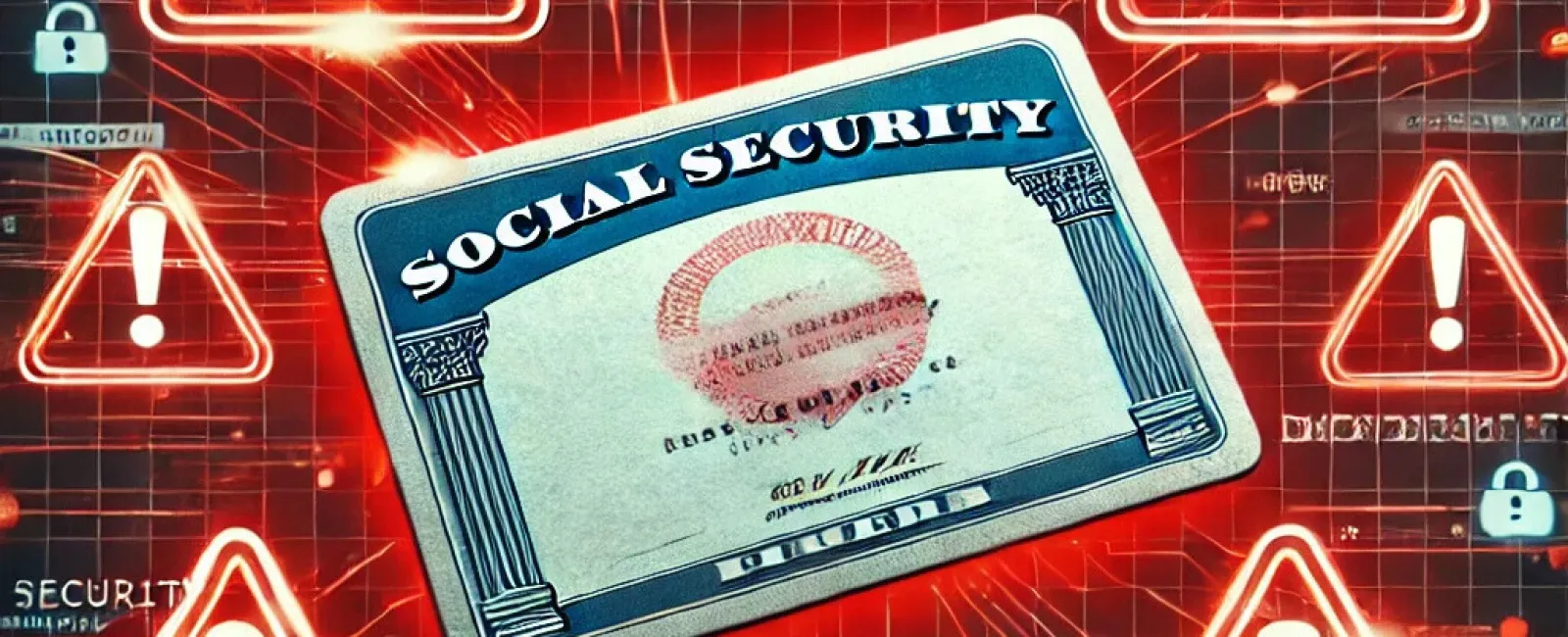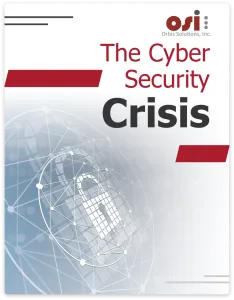December 20, 2024
By now, many people's Social Security numbers (SSNs), which are crucial identifiers, have unfortunately ended up on the dark web. This is largely due to data breaches at major corporations, government agencies, and healthcare providers, resulting in millions of SSNs circulating among cybercriminals. It's a concerning issue, but just how serious is it?
The answer is a resounding yes—it is a significant problem. Here's why a compromised SSN can cause chaos in your life, how to determine if yours has been exposed, and what steps to take if it has.
Is a Compromised Social Security Number Really That Serious?
In the United States, your Social Security number is a vital component of your identity. With access to your SSN, cybercriminals can delve into your financial and personal data, impersonate you, secure loans, and potentially access sensitive accounts. Even if the impact isn't immediate, criminals may hold onto SSNs for years, waiting for the perfect opportunity to exploit them.
What Can Happen If Someone Has Your Social Security Number?
If your SSN falls into the wrong hands, it can lead to:
- Identity Theft: Criminals can use your SSN to open credit accounts, take out loans, or file fraudulent tax returns in your name.
- Employment Fraud: Your SSN could be used to secure a job, potentially resulting in unexpected tax complications for you.
- Medical Fraud: Some criminals use stolen SSNs to receive healthcare services under someone else's name, which can lead to false medical records that complicate future care.
Consider the Equifax data breach of 2017, which exposed the SSNs and personal information of 147 million people. Many victims faced issues like fraudulent credit card applications and false tax returns, with some still dealing with the aftermath today. This incident exemplifies the severity of SSN exposure and its real-world consequences.
Signs Your Social Security Number Has Been Stolen
Concerned that your SSN might be misused? Watch for these warning signs:
- Unexpected Mail: Receiving credit card offers, debt collection notices, or bills for accounts you didn't open.
- Credit Report Surprises: Discovering unfamiliar accounts or inquiries from unknown sources on your credit report.
- Tax Return Issues: Receiving IRS notifications about multiple tax returns filed under your name or being denied an expected refund.
- Health Care Records: Noticing unfamiliar medical bills or strange entries in your medical records.
How to Check If Your SSN Was Leaked and Protect It
Whether you've noticed these red flags or simply want peace of mind, here are ways to check and protect yourself:
- Monitor Your Credit Report: Regularly review your credit report for unfamiliar accounts. You're entitled to a free annual report from each major credit bureau (Experian, TransUnion, and Equifax).
- Use an Identity Theft Protection Service: Services like Experian IdentityWorks or LifeLock monitor your SSN and alert you to suspicious activity. While they can't prevent identity theft, they can help you respond quickly.
- Freeze Your Credit: Freezing your credit is an effective way to prevent fraud. It restricts access to your credit report, making it harder for someone to open accounts in your name. You can easily freeze and unfreeze your credit for free through the three major credit bureaus.
- Sign Up for SSN Alerts: The Social Security Administration offers alerts for certain activities, such as changes to your Social Security account. Though not comprehensive, it's an extra layer of protection to catch fraud early.
What to Do Immediately If Your SSN Is Leaked
If you confirm your SSN is compromised, take these steps immediately:
- File a Report with the FTC: Visit IdentityTheft.gov to file a report with the Federal Trade Commission, which will guide you through a recovery plan.
- Contact the Credit Bureaus: Notify Experian, Equifax, and TransUnion that your SSN is compromised and place a fraud alert on your credit report.
- Freeze Your Credit: If not already done, freeze your credit report to prevent new accounts from being opened in your name.
- File a Police Report: If identity theft leads to financial loss or involves criminal activity, consider filing a report with your local police department for documentation.
- Notify Financial Institutions: Inform your bank and other financial institutions about the compromised SSN so they can monitor your accounts for suspicious activity.
Protecting Your Business: The Importance of Cybersecurity
For small and medium-sized businesses, safeguarding Social Security numbers and other personal data is crucial for security. A compromised SSN can lead to identity theft for employees and clients, unauthorized access to financial accounts, and potential data breaches. Businesses often store sensitive information, so an SSN leak can expose both individuals and the business to legal, financial, and reputational risks.
Implementing a robust cybersecurity plan, including data encryption, network security, and employee education, is essential to protect sensitive information and prevent data leaks.
If you need help securing your business against data breaches and identity theft, our cybersecurity team is here to support you. Click here or give us a call at 702-605-9998 to schedule a FREE Consultation and safeguard your business from costly cyberthreats.




